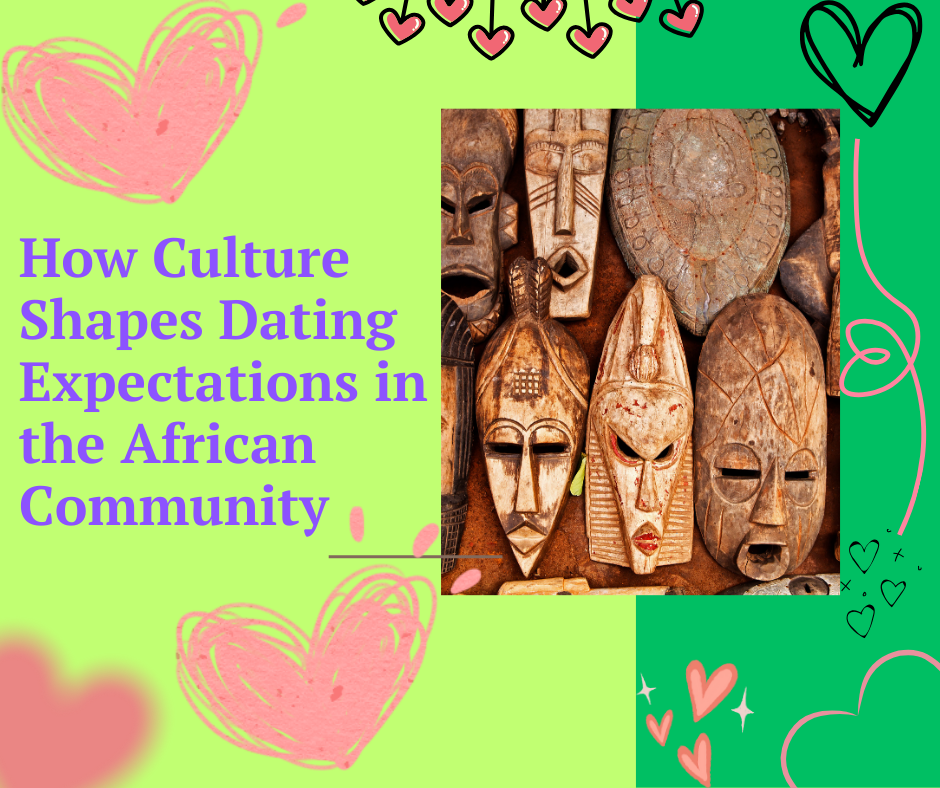1. Family Involvement: Dating as a Collective Affair
In many African cultures, dating is not just a private matter between two individuals—it involves the entire family. Families often play an active role in the dating process, from introducing potential partners to offering guidance and approval. For example, in Nigerian culture, a suitor may be expected to formally introduce themselves to the family and seek their blessing before pursuing a relationship. This collective approach ensures that relationships are built on a foundation of mutual respect and accountability, but it can also create pressure to meet familial expectations.
2. Respect for Tradition: Balancing Modernity and Heritage
African dating is often shaped by a deep respect for tradition. Many individuals feel a responsibility to honor cultural practices, such as courtship rituals, traditional ceremonies, and gender roles. For instance, in some communities, men are expected to take the lead in initiating relationships, while women are encouraged to embody modesty and grace. While these traditions provide a sense of identity and continuity, they can also clash with modern dating practices, such as online dating or casual relationships. Navigating this balance is a common challenge for many African singles.
3. Gender Roles: Expectations and Evolving Dynamics
Traditional gender roles continue to influence dating expectations in the African community. Men are often expected to be providers and protectors, while women are seen as caregivers and homemakers. These roles can shape how individuals approach relationships, from who pays for dates to how decisions are made within the partnership. However, as more African women pursue education and careers, these dynamics are evolving. Many couples are redefining gender roles to reflect their personal values and aspirations, creating more egalitarian relationships.
4. Community Influence: The Role of Social Circles
In African cultures, community is highly valued, and social circles often play a significant role in dating. Friends, relatives, and even neighbors may offer advice, set up introductions, or share their opinions about a potential partner. This communal involvement can be both a blessing and a challenge. On one hand, it provides a support system and helps individuals make informed decisions. On the other hand, it can lead to pressure to conform to societal expectations or choose partners based on external approval rather than personal compatibility.
5. Marriage as the End Goal: Dating with Intentionality
For many in the African community, dating is seen as a pathway to marriage rather than a casual endeavor. This expectation is rooted in cultural values that prioritize long-term commitment and family-building. As a result, individuals often approach dating with intentionality, seeking partners who share their goals and values. While this mindset fosters meaningful connections, it can also create pressure to rush into relationships or overlook red flags in the pursuit of marriage.
6. Spirituality and Religion: Faith as a Foundation
Religion and spirituality are central to many African cultures, and they often shape dating expectations. For example, in Christian communities, couples may prioritize prayer, church involvement, and shared faith as key components of their relationship. In Muslim communities, dating may be guided by Islamic principles, such as modesty and chaperoned meetings. These spiritual foundations provide a sense of purpose and direction but can also limit dating options for those who do not share the same beliefs.
7. Cultural Celebrations: Love Expressed Through Rituals
African cultures are known for their vibrant celebrations, and these often extend to dating and relationships. From traditional courtship rituals to engagement ceremonies, these events are steeped in symbolism and meaning. For example, in Ghana, the knocking ceremony marks the formal introduction of a suitor to the bride’s family, while in South Africa, the lobola (bride price) negotiation is a significant step in the marriage process. These rituals reinforce cultural identity and create lasting memories for couples.
8. Modern Influences: Adapting to Changing Times
While tradition remains important, African dating is also being shaped by modern influences. Globalization, technology, and urbanization are introducing new ways of meeting and connecting with potential partners. Dating apps, social media, and online platforms are becoming increasingly popular, especially among younger generations. These tools offer greater freedom and flexibility but also require individuals to navigate the complexities of modern dating while staying true to their cultural roots.
Conclusion
Culture plays a profound role in shaping dating expectations within the African community, influencing everything from family involvement to gender roles and spiritual values. While these cultural norms provide a sense of identity and continuity, they also present challenges as individuals navigate the complexities of modern relationships. By understanding and embracing these cultural influences, African singles can build meaningful connections that honor their heritage while embracing the possibilities of the future.
